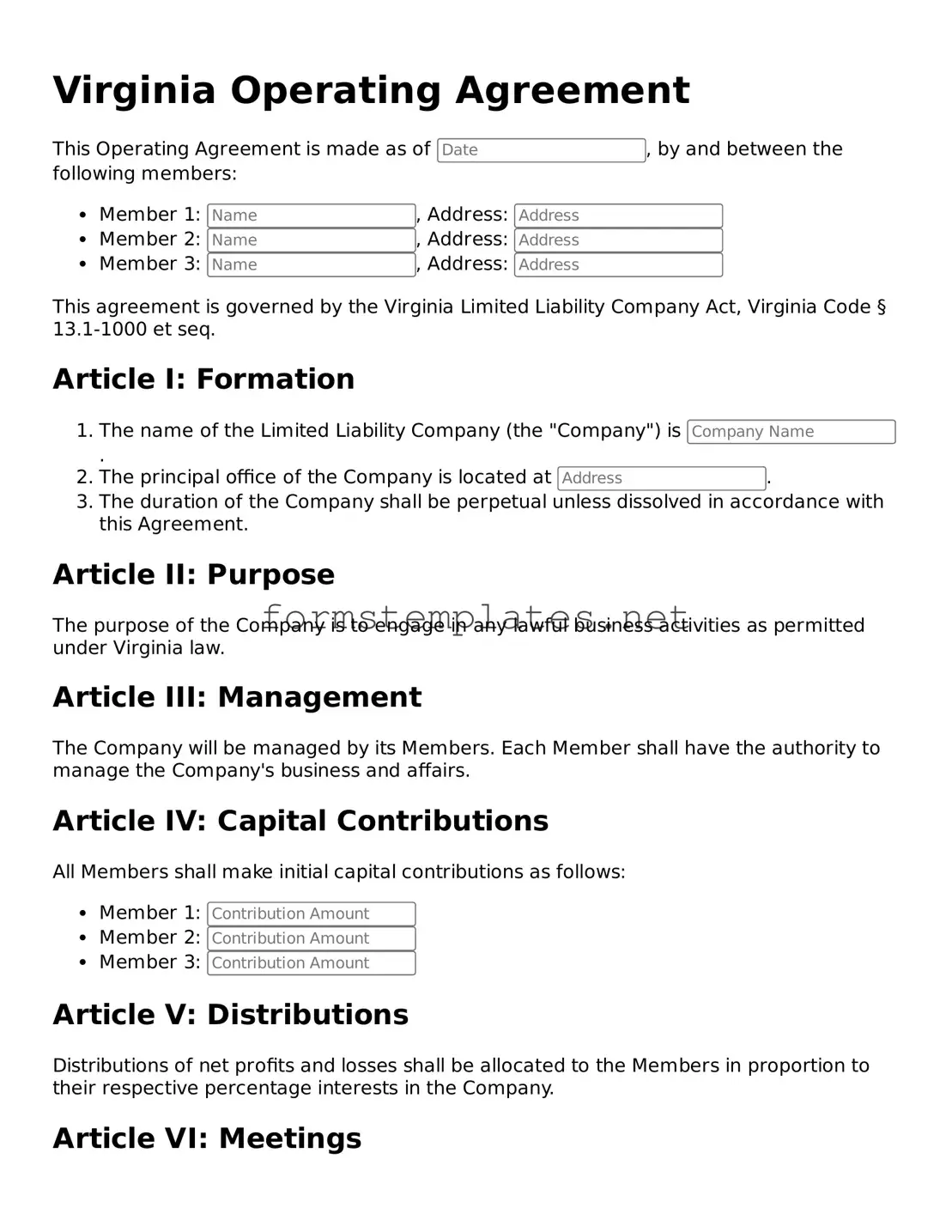Attorney-Approved Virginia Operating Agreement Template
The Virginia Operating Agreement form is a crucial document for limited liability companies (LLCs) in Virginia, outlining the management structure and operational guidelines of the business. This agreement serves as a roadmap for members, detailing their rights, responsibilities, and the procedures for decision-making. By establishing clear expectations, the Operating Agreement helps to prevent disputes and ensures smooth operations within the LLC.
Open Editor Now

Attorney-Approved Virginia Operating Agreement Template
Open Editor Now

Open Editor Now
or
⇓ PDF Form
Your form still needs attention
Finalize Operating Agreement online — simple edits, saving, and download.